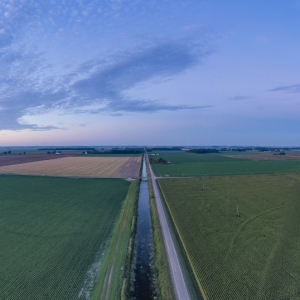Federal Water Tap, September 26: If Necessary, Interior Will Hold Back More Water in Lake Powell Next Year
The Rundown
- The Interior Department outlines steps it is taking in response to a drying Colorado River basin.
- The Bureau of Reclamation will hold public ‘listening sessions’ this week on how to use Inflation Reduction Act funds for western drought response.
- The Army Corps releases a final environmental impact statement for a project to divert sediment from the Mississippi River to rebuild coastal land.
- The EPA establishes a new office that will focus on environmental justice issues.
- Competing bills seek to prohibit or allow lead ammunition on federally managed public lands and waters.
- A Senate bill aims to eliminate financing hurdles for lead service line replacement.
- USDA researchers investigate ‘manure-sheds’ to identify areas where waste generation is out of balance and excess nutrients could be harming waterways.
And lastly, a House committee discusses flooding and cybersecurity threats to water systems.
“Not only do we have aging infrastructure…many of our water treatment plants across the nation are at increasing risk in these extreme rainfall flood events because they were built for the last hundred years.” — Craig Fugate, former FEMA administrator, speaking at a House committee hearing on water infrastructure resiliency. The recent failure of the water treatment system in Jackson, Mississippi, was front of mind for the committee. Fugate reminded the representatives of near-disasters in other cities due to flooding. One of Nashville’s two treatment plants, he recalled, was knocked out in a 2010 flood. Water levels were within a foot of paralyzing the other.
By the Numbers
7: Number of House Democrats from California who signed a letter asking that the Army Corps of Engineers deepen their consultation with counties in the Sacramento-San Joaquin delta before assessing a proposed water-supply tunnel through the area.
News Briefs
Interior’s Next Colorado River Actions
At a conference in Santa Fe, federal officials outlined steps they are taking to respond to critically low reservoirs in the Colorado River basin.
The Interior Department is preparing now in case next year is another hydrological dud.
Officials are setting up the paperwork for releasing even less water from Lake Powell than anticipated. According to operating guidelines, 7 million acre-feet will flow out of the reservoir in 2023. If water levels recede to the point that hydropower generation is endangered, Interior could throttle back those releases, as it did this year.
Interior is also studying structural modifications that would allow for the release water from Powell when the reservoir is low, a move that environmental groups in the basin have called for.
In context: The Bureau of Reclamation’s $4 Billion Drought Question
Environmental Justice at the EPA
The U.S. Environmental Protection Agency will establish a new office dedicated to environmental justice and civil rights protection.
A merger of three existing departments, the Office of Environmental Justice and External Civil Rights will be fortified with 200 staff in the nation’s capital and in regional offices.
Lead Ammunition
A group of Republican senators introduced legislation that would prohibit cabinet secretaries from banning the use of lead ammunition and fishing tackle on federally managed public lands and waters.
The bill would apply to areas managed by the Agriculture and Interior departments. It does allow for restrictions in specific areas, if it is shown that wildlife declines there are attributed to lead ammunition.
A competing bill introduced by Democrats earlier this year would require the U.S. Fish and Wildlife Service to prohibit the use of lead ammunition in the wildlife refuges under its jurisdiction.
Republican and Democratic administrations have taken the same tack in recent years, prohibiting or banning the toxic metal in ammunition used on public lands.
Lead Pipe Removal Financing
A group of Senate Democrats introduced legislation to make it easier for utilities to remove lead drinking water pipes.
The FLOW Act would allow utilities to issue tax-exempt bonds to remove lead services lines on the private side of the meter.
Studies and Reports
Using the Mississippi River to Rebuild Coastal Land in Louisiana
The Army Corps of Engineers released the final environmental impact statement for the Mid-Barataria Sediment Diversion, a project that is intended to rebuild parts of the Louisiana coast that were damaged in the Deepwater Horizon oil spill.
The project aims to achieve this by redirecting sediment-laden water from the Mississippi River. The maximum diversion capacity will be 75,000 cubic feet of water per second, with a base flow of about 5,000 cfs.
As for water quality impacts: the diversion will lower salt concentrations in Barataria basin, a change that is expected to harm eastern oysters and brown shrimp.
National Management of ‘Manure-sheds’
A team of U.S. Department of Agriculture researchers argues in a new paper that regional manure surpluses due to persistent livestock production trends is an opportunity for a national management framework to reduce excess nutrients in waterways.
The researchers looked at “manure-sheds” — a term that identifies where manure is produced and consumed. There is a surplus of manure in the southern United States. The dividing line is roughly the 37th parallel, which extends south of Virginia, Kentucky, Missouri, and Kansas.
Bringing this tilted system into balance will not be easy.
As noted in the paper, “Institutionalizing the practices of recycling manure nutrients on a national-scale from South to North is a formidable task as a vast network of actors are required including producers, manure treatment facilitators, regulatory agencies, extension specialist, fertilizer distributors, manure haulers/brokers, recreationists, NGOs, advisors/consultants, and contract specialists.”
In context: Powerful Industry’s Torrent of Manure Overwhelms State Regulators
On the Radar
Inflation Reduction Act Funding for the Colorado River
The Bureau of Reclamation will hold two public “listening sessions” on September 30 to gather public input on how $4 billion in Inflation Reduction Act funds for western drought response should be spent.
Details on how to join the calls — one focused on tribes, the second on other stakeholders — are in the above link.
Puerto Rico Electric Grid Hearing
On September 30, the House Natural Resources Committee will hold a hearing on Puerto Rico’s electric grid. Flooding in the wake of Hurricane Fiona knocked out power on the island, affecting the provision of drinking water.
Federal Water Tap is a weekly digest spotting trends in U.S. government water policy. To get more water news, follow Circle of Blue on Twitter and sign up for our newsletter.
Brett writes about agriculture, energy, infrastructure, and the politics and economics of water in the United States. He also writes the Federal Water Tap, Circle of Blue’s weekly digest of U.S. government water news. He is the winner of two Society of Environmental Journalists reporting awards, one of the top honors in American environmental journalism: first place for explanatory reporting for a series on septic system pollution in the United States(2016) and third place for beat reporting in a small market (2014). He received the Sierra Club’s Distinguished Service Award in 2018. Brett lives in Seattle, where he hikes the mountains and bakes pies. Contact Brett Walton







Leave a Reply
Want to join the discussion?Feel free to contribute!